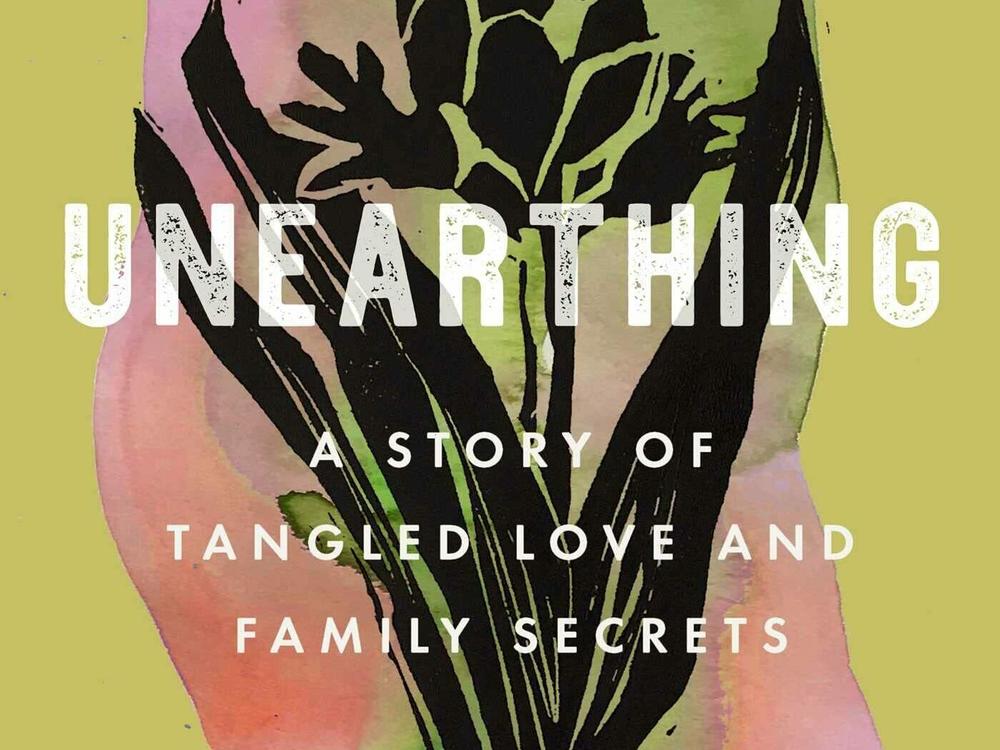Section Branding
Header Content
'Unearthing' couples the natural world with the meaning of family
Primary Content
Kyo Maclear's poetic, elliptical memoir Unearthing: A Story of Tangled Love and Family Secrets begins with the revelation of a fact buried for almost five decades. In 2019, Maclear learned via DNA testing that the father who had raised her, who had recently died, was not biologically related to her.
One might expect that this bombshell would spark an investigation into the mystery of her paternity but, instead, Maclear turns immediately to the mystery of her mother. "My silver-haired mother" — not her father — "became unknown to me," Maclear writes. "She had a big story to tell...a story that she struggled to express — or had no wish to express — in her adoptive language, English."
Maclear explains that her mother, the Japanese painter and gallerist Yoko (Mariko) Koide, had "never really liked stories." But the man Maclear thought to be her father, the British foreign correspondent and documentary filmmaker Michael Maclear, had passed on a love of shaping narrative and asking questions to "make a story legible." Kyo Maclear turned that inheritance into a career — she is the author of 19 children's books, two novels for adults, and the 2017 memoir Birds Art Life. But in the face of the unravelling of the foundational narrative of her life — and in acknowledgement of Yoko's resistance to storytelling, in particular to telling the story of who Maclear's biological father was — Maclear turns to a different way of understanding her world and connecting with her mother: gardening.
This turn to the natural world in some ways recalls Maclear's approach in Birds Art Life, in which she took up urban birdwatching for a shift in perspective, and makes sense in light of the fact that the author had recently completed a doctorate in environmental humanities before her father's death. But even with this background experience, Maclear opens Unearthing by juxtaposing her mother's fluency in plants with her own lack of knowledge: "Ma was a gardener. Where she saw gradients of celadon, emerald, sage, olive, I saw only a thin green blur." Maclear needs to learn how to speak her mother's "wild and green" language if she wants to get her to loosen her hold on this secret.
Over the course of the memoir, Maclear gives herself over to her small garden in her Toronto yard, digging deep into the soil as she attempts to trace the roots of her story. By pairing the untangling of her family tree with an appreciation of the entanglement of the natural world, Maclear meditates on our desire to impose clear-cut boundaries on what comprises kinship and inheritance, and reminds us of our belonging to larger ecosystems. In this, Unearthing forms a unique take on the paternity mystery memoir, one that eschews a predetermined narrative arc for a wide-ranging exploration of what it means to be a family.
Unearthing unfolds in sections that take their titles from the names of Japanese sekki, or "small seasons"; each section represents a span of months between 2019 and 2021, as Maclear worked to make sense of her family tree. But the short chapters that fall under these headings jump between the present and the past, sometimes dipping back to examine shards of her parents' lives and contentious relationship, sometimes to relate anecdotes from her own childhood. Throughout, Maclear weaves in passages about plants — the palms in a public greenhouse she visited weekly after her father's death, the "shaggy fern and stiff-postured horsetail" in her mother's garden, the thyme she "uprooted" from her own yard to plant on her father's grave.
The book's nonlinear effect sometimes recalls prose poetry, especially in the shorter, more oblique chapters, such as one made up of two short paragraphs that opens with the thought experiment: "Suppose every family has a secret kiosk of surprise kin, ready to rush out at any moment." In other chapters, she draws on the work of thinkers, artists, and gardeners like Robin Wall Kimmerer, Derek Jarman, and Jamaica Kincaid for inspiration and reflection. Toward the end of the book, she borrows from Joe Brainard's iconic memoir I Remember with her own series of rememberings; she even constructs her own herbarium. Unearthing's capaciousness and wanderings both mimic Yoko's conversational style — full of "sly segues," as she parcels out bits of information about Maclear's conception — and serve as a reminder that "not everything can be woven into a pattern, some dots don't have a line to connect them," as Maclear writes to herself in the voice of her mother.
With this looseness, it can at times feel as though Maclear is writing two different books that don't quite synthesize — one on family, and one on plants. She even acknowledges this: "It is possible that making the garden an extension of this story is wrong. And making the story an extension of the garden is also wrong."
Ultimately, bringing in the botanical allows Maclear to imbue her family's story — specifically, the story of why both her mother and father would choose to keep her parentage a secret for so long — with a generous, open-handed perspective. The plant world reminds us of our interconnectedness, of the porousness of the boundaries between individual living things. "To grow something is to consider what will still be here long after you have moved on but also to touch the history of what was here before," Maclear writes of her garden. The same might be said of having children and telling stories. In applying lessons from gardening, Maclear pushes for a new understanding of family, "one that could embrace the ways we stretched far and farther."
Kristen Martin is working on a book on American orphanhood for Bold Type Books. Her writing has also appeared in The New York Times Magazine, The Believer, The Baffler, and elsewhere. She tweets at @kwistent.
Copyright 2023 NPR. To see more, visit https://www.npr.org.

